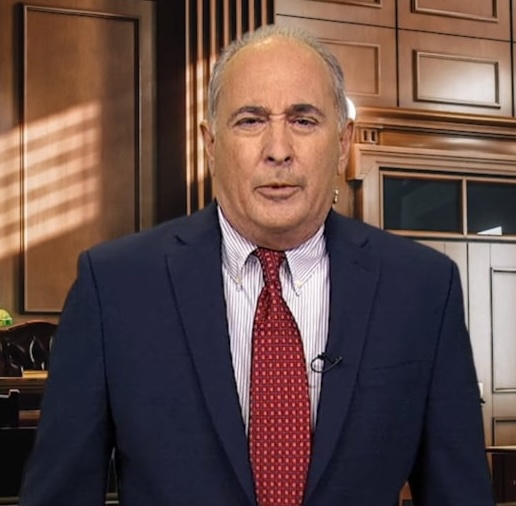
If the marital home was purchased during the marriage, it is a marital asset that belongs to both parties and is subject in general to a 50-50 split if it is sold. Keep in mind though that one party or the other could ask for more than 50% by alleging an extraordinary contribution regarding the home, however, it is rare when this occurs. It does not matter in general whether the deed to the home is in both parties’ names or not if the home was acquired during the marriage. Other than a 50-50 slit, however, there can sometimes be exceptions about what happens to the marital home upon divorce in Florida. For example, if the home was bought by one party during the marriage only in that party’s name, and the down payment and the mortgage payments came from funds that the party had before the marriage, or funds that that one party got from a 3rd party during the marriage, the home would likely be considered the property only of that one party. But that’s a pretty rare event. Sometimes what happens however is that a party has a home before the marriage, and there’s a mortgage on it that is paid during the marriage.

What happens to the marital home upon divorce in Florida?
So the property will always be the one party’s property as long as it was not put in both parties’ names. But if the mortgage was paid with marital funds, i.e. funds earned by one or both parties during the marriage, the other party will have a money interest in the property that they are entitled to get upon divorce. How much they will get will depend on how much the equity increased during the marriage because of paydown of the mortgage, increase in value of the property during the marriage, and increase in value because of any improvements made on the property during the marriage with marital funds or marital labor. (This is presuming the improvements increased the value of the property). Another possibility is that one party inherits a home or is given a home by a third party just to that spouse and not to both spouses. As long as the inheriting / receiving party does not put the home into both names, it will remain that party’s sole property. But as previously mentioned, if a mortgage is paid with marital funds, then the other party will have a money interest in the property. (Note that it is possible to argue in a Florida divorce that even though a party put their property into joint names with their spouse, that they didn’t intend a gift, and that therefore the property should remain solely theirs, but that’s a tough argument. It might be argued that the property was put into both names for probate reasons). Note also that if a party buys a home in their own name shortly before the marriage with the intent that it be the marital home, that the court may in fact determine that it belongs to both parties. Also, if a home is purchased by one party long before the marriage, but the parties live in it for many, many years during the marriage, it could be argued that the other spouse is an owner too.

Selling marital home after divorce in Florida
One of the topics that comes up is about selling the marital home after divorce in Florida. That question will depend on whether the two parties agree to do something differently than sell the home, which is perfectly permissible, or whether the judge is going to decide what’s going to happen with the home because the parties cannot agree on disposition of the home. Depending on the circumstances, the judge may or may not order the property sold. So, for example, if there are minor children, and the wife is granted the majority of the time-sharing with the children, and the children have grown up in the home for years and go to school in the area, and have friends in the area, the court might not order the home sold. But there’s an exception to that, if the home is the sole or at least major asset of the parties it would not be fair if one party received the home and the other party had to wait many years to get their equity out of the home upon sale. If one party is awarded exclusive use of the property to continue raising the children, it doesn’t mean that the other party loses their ownership rights to the home. The reason that the judge may allow the party who has the children most of the time to stay in the home is because the law does not want to see children taken out of their environment where they have friends, familiar school, and stability.

Marital home division for equity
If the parties have lots of assets it is possible that the marital home could be awarded to one property and an investment account of equal value could be given to the other party. That’s one example of what happens to the marital home upon divorce in Florida. Remember that there’s a difference between what the judge must order under the law and what the parties can agree to. Pretty much the parties can agree to anything as long as each party is knowingly and voluntarily entering into the agreement. The parties may agree that the wife for example will get the marital home. Or They may agree to list the home for sale and sell it. If they agree to list it for sale, they should make provision for who stays in the home until it’s sold, and who pays the mortgage and bills until it is sold. They should also decide who is going to get what portion of the sale proceeds. And then finally they must decide who is going to pay the deficiency judgement if the property is “upside down” and the mortgage cannot be fully paid out of sale proceeds. There could also be a deficiency judgment if the home is foreclosed upon.

What happens to the marital home upon divorce in Florida?
If the parties agree for example that the wife is going to keep the home, the question is going to be whether there will be a buyout of the husband’s interest by the wife, and whether the wife needs to refinance the mortgage. The husband likely will not want the mortgage to remain in his name if the wife is keeping the property. So there needs to be a provision in the parties’ agreement as to when the buyout must be paid by, how much the buyout is, and what the deadline is for refinancing the property out of the husband’s name. Then the final thing to consider is what happens if the buyout payment is not made in a timely fashion or if the refinancing does not occur in a timely fashion. One possibility is that if these things do not occur, that the property be sold immediately. The other possibility for example is that the husband agrees to stay on the mortgage if the wife has made her best effort to refinance and get his name off the mortgage. Then there could be a provision for example that if the Wife misses a payment that the property be sold. The other possibility is that if the wife cannot make the buyout payment that the wife may keep the property and when the home is sold that the husband would get his funds. Then there’s also the question of when a deed is given to the party who is keeping the property. So there are many possibilities as to how these different topics can be dealt with.

Jointly owning the marital property after divorce
The other possibility is that the parties agreed to jointly own the property after the divorce. In this case they should define in their agreement who is going to be able to live in the house or if it’s going to be rented. Then they must decide what happens to rental proceeds, who pays what expenses, and when the property might be sold. It must be remembered that a party can at any time ask for what is called “partition”, which is basically asking the court to force a sale of the property. So the parties might agree in their divorce to jointly own the property and one party or the other could turn around a week later and ask in civil court for a partition of the property such that it would be sold. This perhaps can be avoided by having in the marital settlement agreement that each party waives partition.

